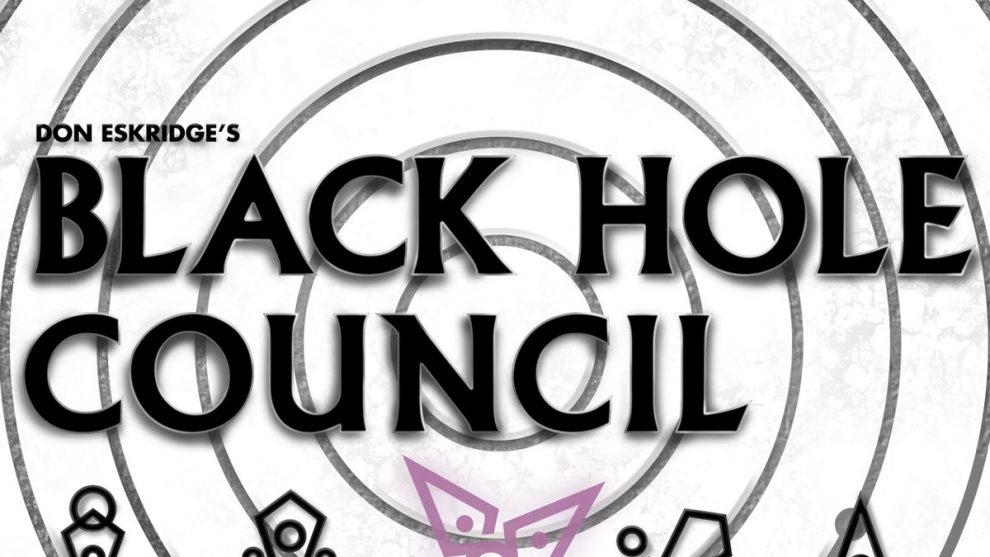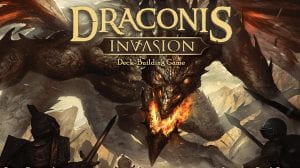I feel bad for Don Eskridge. He designed the Resistance, a game that sparked the social deduction revolution in the tabletop sphere. Once held by the tyrant known as Werewolf, Resistance showed the world that you don’t need player elimination to find out if your friends are liars. The success of the game allowed other designers to express their interpretations of the social genre and publishers willing to take on the risk. Most of these games were pretty bad, but some managed to get attention like Good Cop, Bad Cop.
A few years after the interest in the Resistance died down, Don designed Abandon Planet, a semi-cooperative about a doomed Earth. Your job is to negotiate with other players trading resources and ship parts since you need to construct a spaceship to get off the planet. It didn’t do well, with a BoardGameGeek rating hovering in the 6 range with lukewarm reviews. A year later, we have another negotiation game by Don Eskridge, and we are going to see if this is a meeting worth attending or if we should call in sick.
A New Job
Congratulations. You have secured a position in the Black Hole Council thanks to connections and calling in favors. It isn’t for charity reasons since your sponsor has an agenda they want you to complete. They want those Red planets taxed, Green Planets to be mined, and Yellow planets must go to the Black Hole. Sounds easy, until you realize the rest of the council is in a similar predicament as you. You must negotiate your way through this social maze, and that might involve bribery with a side order of subterfuge.

In each negotiation round, the Leader will draw 5 planet cards and put them into each slot representing the different policies such as Mining, Taxes, and so forth. These policies do not have any mechanisms associated with them, as they merely serve as a label for your Agenda. The Leader can rearrange the planets how they see fit, while the other players protest or encourage the changes.
Once the sand timer has run out, all players must vote. If the majority agrees, everything is good, and scoring proceeds. If the voting failed, leadership changes, or if this was the third failure, the planets are destroyed, and no points are scored.
To encourage people to vote yes, bribery is an option. The leader can bribe a single player from a “bribery pool” that only increases for each failed vote. A single player can also bribe the leader with 1 coin, and only one of these types of bribes are allowed. Unlike most negotiation games, these bribes can only be placed in a player’s bank if the vote goes through, giving some insurance in case the outcome is unfavorable. It is something I wished more negotiation games have since bribery was always an interesting tool to fiddle around.
I did mention scoring because this is a point-based game. Every planet card is worth between 0 to 3 points with some planets giving you coins at the very end of the game. You can only score these points if the planet’s color and the slot they are in fit with your assigned Agenda card. For example, if your agenda card says Yellow Planet in Mine, you can only score points on the Yellow planet cards if it’s been accepted in the Mining slot. Easy enough so far.

Unconventional Scoring
Here’s the rub: Going down the scoring track is a bonkers affair. It isn’t the typical scoring track with numbers 1-2-3-4-5-6 that you would expect. What was once normality is replaced with something unorthodox. To move up the scoring track, you must meet a certain threshold of points, and any points you do not spend on that round are lost. You always have the option of spending coins to boost your points as well. In the beginning, this is straightforward with only 2 points to move a space, but the end of the track requires 4 points. This pushes you to be more radical in your discussions with the group as you advance the track, which is a very welcome adjustment that I find lacking in other negotiation games.
You can also lie about how much you scored and even throw in coins when you don’t have to. This is where the confusion comes in.
The reason why you want to lie is every third round is a Deduction round. Instead of discussing what planets should go where you are going to guess a piece of your neighbor’s agenda card. Guess correctly, and you are rewarded with a coin while failure compensates your neighbor with a coin since they fooled you. I won’t even bother to decipher the thematic elements that lead to such a mechanism, but it’s there.

The tenth and final round is the payout. It is where the coins on the planet cards come into play, as each planet card that fits your agenda will give you a coin. You will spend these coins to advance the scoring track with any leftover coins playing the role as the tiebreaker. If you are furthest down the track, you win.
What Are You?
To say the least, Black Hole Council feels like it’s fighting with itself and can’t come up with its own identity. It is like dragging a kid to McDonald’s, and they cannot decide what happy meal toy they want.
The very first sign of this is how it handles negotiation. The definition of negotiation is reaching an agreement, or if you are pessimistic as I am, a compromise worth entertaining. Having each player with their hidden agenda cards and mechanisms to encourage lying about your goals destroys any form of negotiation. If you cannot understand what seven other people at the table wants, then any attempt at making deals is a fruitless effort. What could’ve been a genuine accommodation and collaboration to score points is reinstated by a lottery system made out of cards.
One of the cornerstones of a deduction game is logical patterns. You are trying to figure out a pattern, and for you to do that, you need to figure a reason why the ‘problem’ keeps popping up. In social deduction games, all of this baked into the mechanisms to potentially expel the traitors amongst your friends. In Black Hole Council’s case, it is nearly impossible to figure out patterns due to the free-form nature of the game.

Let’s say I think your agenda card has Black Planet in Settle, and I’m right on my theory. I try to propose having the Black planet with 2 points in Settle. You disagree with it, but it still passes. That’s one layer of bluffing, and there’s nothing wrong with that. However, you decide to score less than the amount or none at all. Even though I read you correctly, I cannot make a pattern based on what just happened because the game makes it easy to dodge logical traps like this one. There is no pattern to deduce therefore, I don’t have anything tangible to work with even though I made the correct guess. Much like the negotiation, trying to figure someone out is an aimless gesture than something worth mastering.
I don’t need to say but I will anyway: I don’t recommend this. It’s a game trying to merge deduction and negotiation using spit and glue. Trying to have a discussion with other players feels pointless, and any attempt to read your opponents is met with punishment. It isn’t to say the idea of bluffing and negotiation can’t co-exist, it’s just what is presented doesn’t make the experience enjoyable. My alternative to a game that tries to reach the same goals as here but in a far more palatable way would be Goodcritters. It’s shorter, lighter, and more fun.












Add Comment